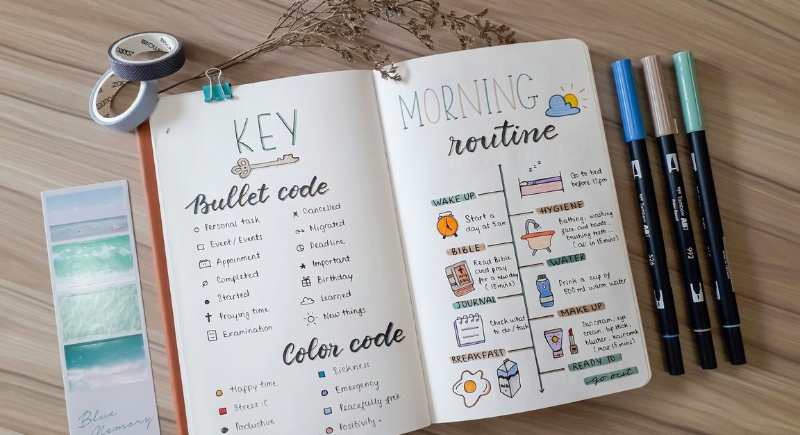Why We Love Peeking Into Other People’s Morning Routines
Viral morning routine videos with sunrise yoga, elaborate skincare, and $8 lattes hide an ugly truth: not everyone has the luxury of shaping their mornings around self-care. In fact, the vast majority of adults begin their day rushing to get children to school, commuting long distances, or heading straight into demanding shifts. These videos erase the realities of financial stress, unpredictable schedules, and competing responsibilities.
And yet, we can’t help but watch. What’s up with that?
The Psychology Behind Our Obsession

Image via Unsplash/Chris Yang
Online culture has turned the morning routine into a cultural fixation on productivity and self-improvement. Workplaces encourage morning habits as markers of discipline, while wellness brands package them as products to buy. Psychology can explain some of this phenomenon.
Humans naturally compare themselves to others as a way of self-measurement. When we see someone’s orderly morning, we might feel inspired or inadequate. The appeal lies in the possibility that a ritualized morning can lead to control, calm, and eventual success. However, comparison can quickly turn toxic.
Believing that mimicking someone else’s actions will yield identical results oversimplifies life and places undue pressure on people.
Interestingly, this tendency is also related to identity signaling. Morning routines broadcast who we think we are—disciplined, creative, spiritual, ambitious. Sharing these rituals online creates a shorthand for the self we want others to see.
Morning Routines Across Cultures
The fixation is especially strong in the U.S., where hustle culture glorifies waking up earlier, working harder, and squeezing the most into every day. In other cultures, mornings have a much different pace. In parts of Southern Europe, breakfast can be leisurely and social.
In Japan, morning practices often emphasize harmony and mindfulness. These variations highlight that there is no single “right” way to start a day, despite social media’s push for a universal standard. Looking beyond the Americanized lens shows how cultural values shape what people consider meaningful.
There Is No One-Size-Fits-All Routine

Image via Unsplash/Ngo Ngoc Khai Huyen
Trying to perfectly adhere to a rigid schedule is just one more thing to feel inadequate about. It’s hard to make the same recipe when you don’t have the same ingredients.
We need to remember that no single routine fits everyone. Our days and needs change. We have to account for variances in our health, our schedules, and our responsibilities. Obsessing over a productivity-driven schedule means we ignore these natural ebbs and flows.
The healthiest perspective is to stop chasing perfection and focus instead on supportive routines. For some, that might mean journaling before work; for others, simply drinking water before rushing out the door is enough.
Flexibility allows mornings to serve as a gentle launch rather than a rigid test.